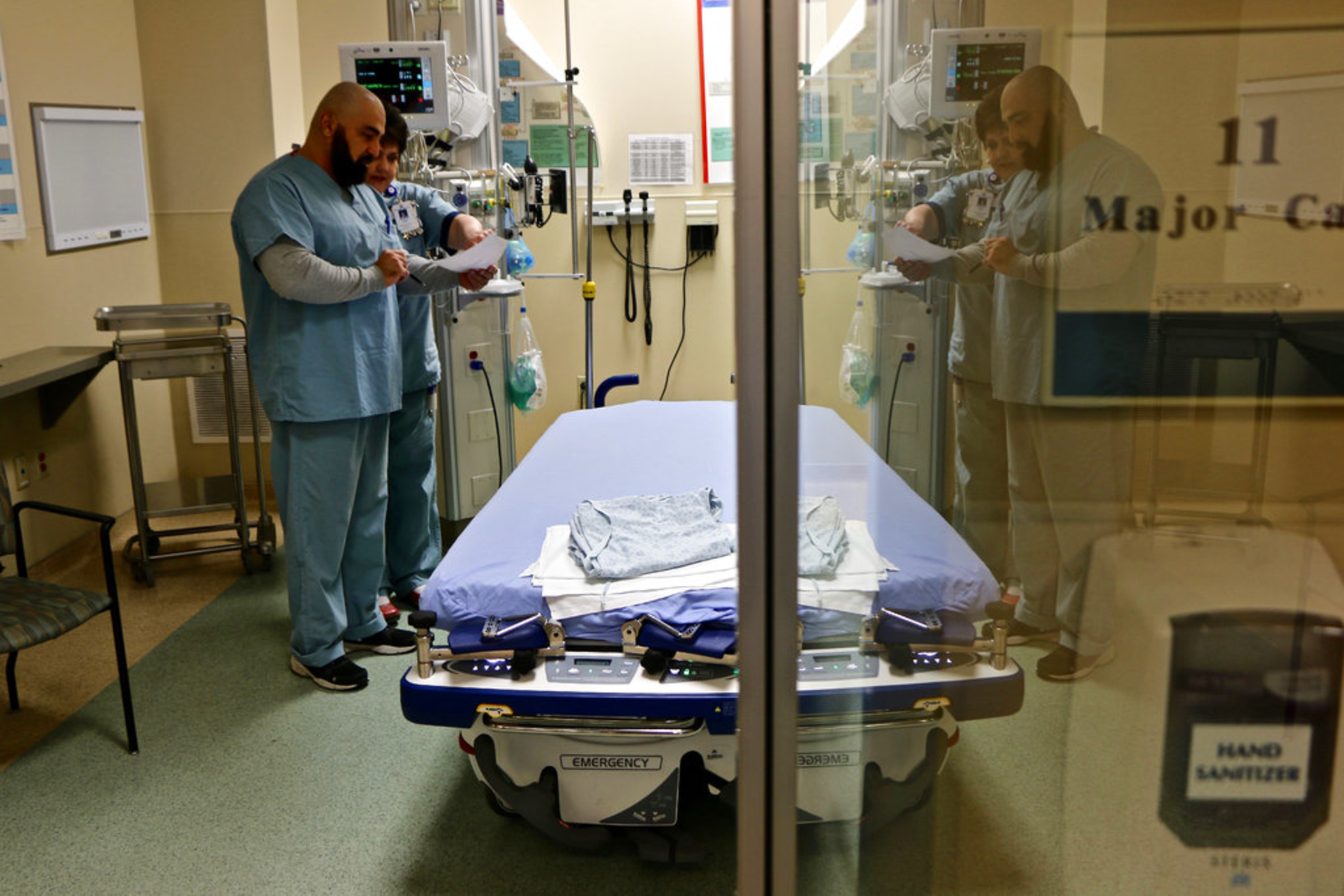Section Branding
Header Content
Would legislation curb violence against health care workers? Lawmakers are skeptical
Primary Content
Lawmakers on Monday mulled that new legislation may not be the best solution to protect health care workers.
A Senate panel tasked with addressing the pervasive problem of violent outbursts by patients against medical staff reviewed committee recommendations compiled after hearing testimony from hospital executives and their staff on the issue.
Across Georgia, hospitals have been raising the alarm on a startling increase in violent attacks by patients against their staff.
While both verbal and physical abuse has long plagued the medical profession, hospital leadership attribute record levels of incidents to the devastation wrought by the COVID-19 pandemic and the strain it has put on hospitals struggling to manage the workload.
The violence has become so ingrained in the daily routine, doctors told lawmakers, that they struggle to get staff to even report them.
“We know that violence against health care workers is not a new problem,” said Sen. Kay Kirkpatrick, R-Marietta, chair of the committee. “But we know that the problem has gotten worse and that COVID has aggravated the entire situation.”
While lawmakers and medical professionals on the panel all agreed health care workers should receive special training to better handle the situations, some said changes to criminal penalties or mandatory reporting requirements may create more harm.
“It's easy to write bills, but sometimes we are trying to fix something and we end up making it worse,” Kirkpatrick said. “I'm getting the sense from everybody that's here that we just might not be the way to address the problem.”
This isn’t the first time lawmakers have tried to curb violence against the state’s medical first responders. In 2016, the General Assembly voted to enhance penalties for assaulting emergency nurses.
Health care workers on the panel Monday did not believe enhancing penalties for aggravated battery and aggravated assault against health care workers would solve the problem — given that many of the patients committing the acts don’t weigh the consequences of their actions.
But Deb Bailey, executive director of government affairs for Northeast Georgia Health System, pointed to the inconsistencies of criminal penalties from department to department.
While it’s a felony to assault an emergency nurse, for other departments in the hospital it is only a misdemeanor.
“I do think it requires conversation,” she said. “Because it is not logical to our nurses or to any of our clinical staff that are being assaulted, that once we move that same patient up to the second floor, that the penalties are different.”
Hospitals previously testified to lawmakers that the issue of violence against their staff is severely underreported because it is accepted as “just part of the job.” The committee weighed a requirement for mandatory reporting, but determined that may also cause new problems.
Johns Creek Democrat Sen. Michelle Au, also in the medical field, warned of potential negative impacts.
“The unintended consequence being that it discourages health care workers from engaging in high-risk patients,” she said. “Meaning patients with mental illness, that it actually dissuades people from providing the type of care that these patients might need because of this risk of maybe needing to mandatory report.”
After likely ruling out changes to Georgia’s code, the panel agreed health care workers need the proper tools to help mitigate violent attacks and should receive regular de-escalation training similar what to law enforcement officers and other first responders receive.
“From my standpoint, training is a key part of what we need to be figuring out,” Kirkpatrick said. “And that might require some additional resources, but it probably doesn't require legislation to make that happen.”


